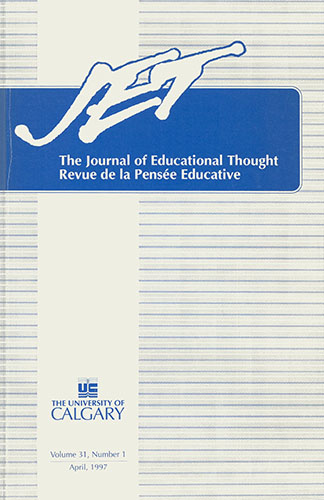The Consequences and Value of Literacy: A Critical Reappraisal
DOI :
https://doi.org/10.55016/ojs/jet.v31i1.52453Résumé
In many First World countries, the value of literacy is seldom questioned. Literacy, it is often believed, has certain consequences (e.g., economic growth, social mobility, and logical thought) which are highly desirable. This article problematizes commonplace assumptions about the nature of literacy. Rejecting the technological view of literacy (represented by theorists such as Goody and Ong), the author, drawing on the work of Lankshear and Lawler, argues that reading and writing need to be seen as complex social forms, dynamically interwoven with (and inseparable from) other dimensions of human activity. Literacies are seen as heterogeneous, nonneutral constructs and practices, with consequences which vary across different contexts and ethical positions.Téléchargements
Publié
2018-05-17
Numéro
Rubrique
Articles
Licence
The Journal of Educational Thought retains first publication rights for all articles. The Journal grants reproduction rights for noncommercial educational purposes with the provision that full acknowledgement of the work’s source be noted on each copy. The Journal will redirect to the appropriate authors any inquiries for further commercial publication of individual articles. All authors wishing to publish in JET will be asked to fill in and sign a Consent to Publish and Transfer of Copyright agreement.
Authors must affirm that any submission to JET has not been and will not be published or submitted elsewhere while under considration by JET.

